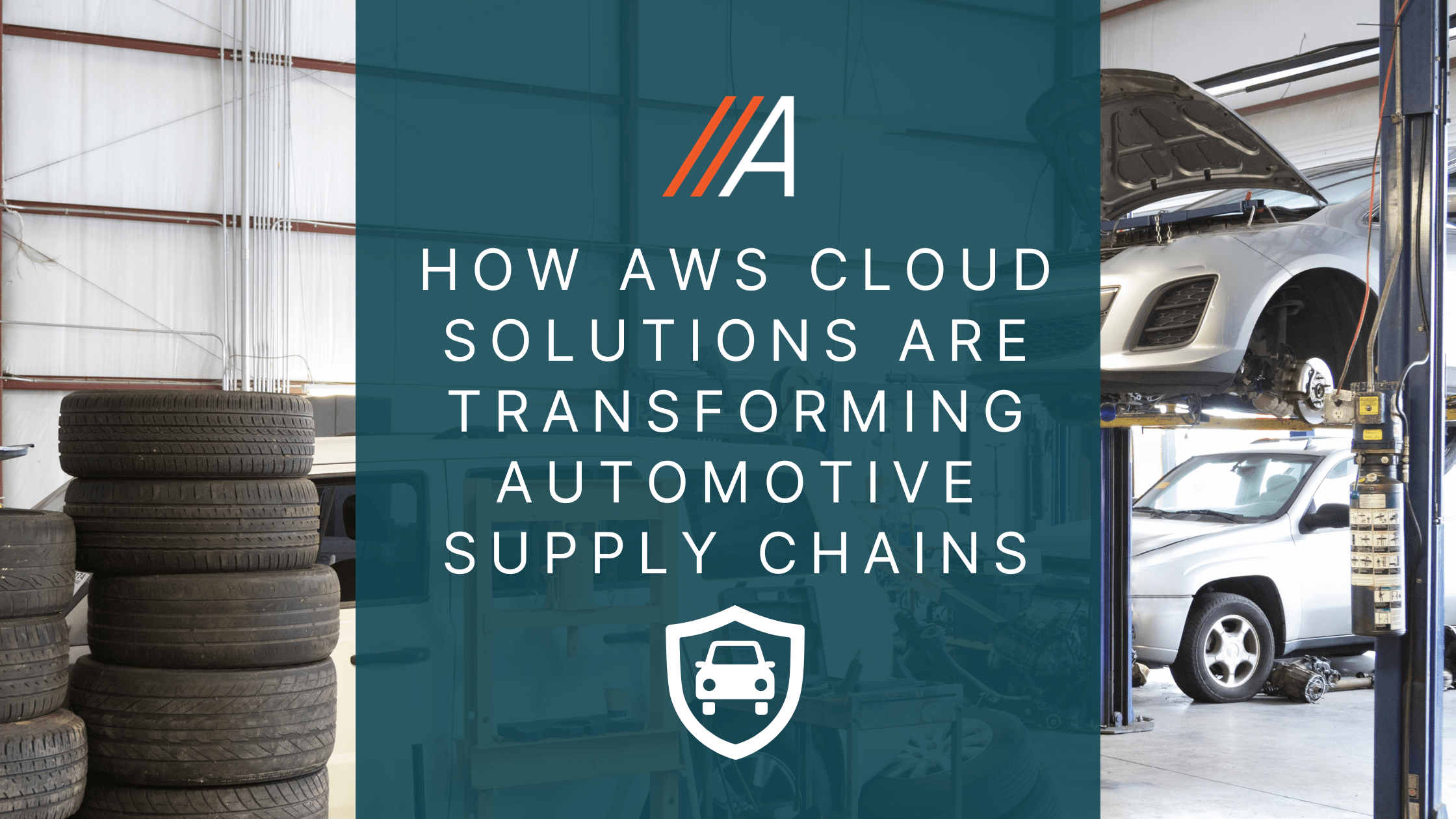
Driving Efficiency: How AWS Cloud Solutions are Transforming Automotive Supply Chains
As automotive manufacturers and suppliers face global challenges like fluctuating demand, logistics disruptions, and the need for seamless communication across vast networks, cloud technology offers transformative potential. Amazon Web Services (AWS) is a key player in helping the automotive industry reimagine supply chains with intelligent, scalable solutions that drive efficiency from factory floor to dealership.
Let’s explore how AWS is helping the automotive sector streamline supply chains, reduce costs, and ensure transparency with real-time data.
Real-Time Tracking with AWS IoT Core: Ensuring Transparency in Complex Supply Chains
Modern automotive supply chains are incredibly intricate, often spanning continents and requiring coordination across various suppliers, manufacturers, and distribution channels. AWS IoT Core, a managed service for secure, bidirectional communication between Internet of Things (IoT) devices and the cloud, has become essential for tracking and monitoring assets in real time.
With AWS IoT Core, manufacturers and suppliers can:
- Track raw materials and finished products from supplier to assembly line to end customer
- Monitor environmental factors, such as temperature and humidity, to ensure parts remain in optimal condition
- Use predictive insights to prevent delays and quickly resolve bottlenecks in logistics
For example, BMW uses AWS to monitor their supply chain with a high level of transparency, ensuring that all components are in the right place at the right time. By integrating AWS IoT Core, they’re able to visualize their supply network, predict potential delays, and make data-driven decisions in real time.
Scalability with AWS: Cost Savings and Flexibility for Demand Fluctuations
The automotive industry often sees dramatic fluctuations in demand, especially during major shifts like the rise of electric vehicles. Traditional infrastructure can struggle to accommodate these changes without incurring significant costs. AWS’s scalable cloud infrastructure, however, allows manufacturers to adjust resources as needed, only paying for what they use.
Key benefits of scalability for automotive supply chains include:
- Cost Efficiency: By scaling up or down based on demand, companies avoid the capital expenses of unused resources.
- Flexibility for Production Peaks: Automakers can instantly add capacity during peak production seasons or product launches.
- Rapid Response to Disruptions: If demand surges unexpectedly, the cloud’s scalability supports a rapid response, preventing costly delays.
Toyota has leveraged AWS to better manage these demand cycles, scaling resources to meet fluctuating production needs without incurring excessive operational costs. By using services like Amazon EC2 for compute resources, they can optimize production costs during high-demand periods and scale down during slower times.
Streamlined Communication and Inventory Management with AWS Services
One of the biggest challenges in automotive supply chains is maintaining accurate inventory levels and enabling seamless communication across suppliers and production lines. AWS offers solutions like Amazon Managed Blockchain and AWS Lambda to automate data sharing and streamline communications, ensuring everyone has access to the latest inventory and logistics information.
Examples of AWS services for inventory management and communication:
- AWS Lambda: Automates data flows and updates inventory levels in real-time, so production and procurement teams always have accurate stock information.
- Amazon Managed Blockchain: Ensures secure, transparent data sharing across suppliers, reducing miscommunications and delays.
- Amazon S3: Provides a secure and scalable storage solution for storing and sharing documentation, blueprints, and logistics details.
Ford, for instance, has used AWS’s cloud services to create a more integrated supply chain, reducing lead times and enhancing collaboration across their vast network of suppliers. This approach enables Ford’s production facilities to avoid delays, and allows suppliers to adapt quickly to changes in order volumes.
Case Studies: Automotive Companies Leveraging AWS for Supply Chain Optimization
BMW: With AWS IoT Core, BMW can track parts and products throughout the supply chain, ensuring that components arrive at the assembly line exactly when needed, reducing costly inventory levels and ensuring high-quality standards.
Toyota: AWS’s scalable infrastructure allows Toyota to adjust cloud resources according to demand, minimizing costs during off-peak periods and avoiding production halts during spikes.
Ford: Ford has created a seamless data-sharing system with AWS to improve transparency across their supply chain. With services like AWS Lambda and Amazon Managed Blockchain, Ford ensures that its suppliers are always aligned with production needs.
Transforming Automotive Supply Chains with AWS
In an industry where downtime is costly and efficiency is critical, AWS cloud solutions provide a scalable, transparent, and data-driven approach to supply chain management. AWS IoT Core offers real-time tracking, AWS’s scalable infrastructure reduces costs, and inventory management solutions foster seamless collaboration across the supply network.
As the automotive industry evolves, those leveraging AWS’s capabilities are poised to lead the way, driving not only vehicles but innovation in supply chain efficiency and resilience.
Contact us to learn more about our AWS automotive solutions.
Last Updated on November 4, 2024 by Lauryn Colatuno

